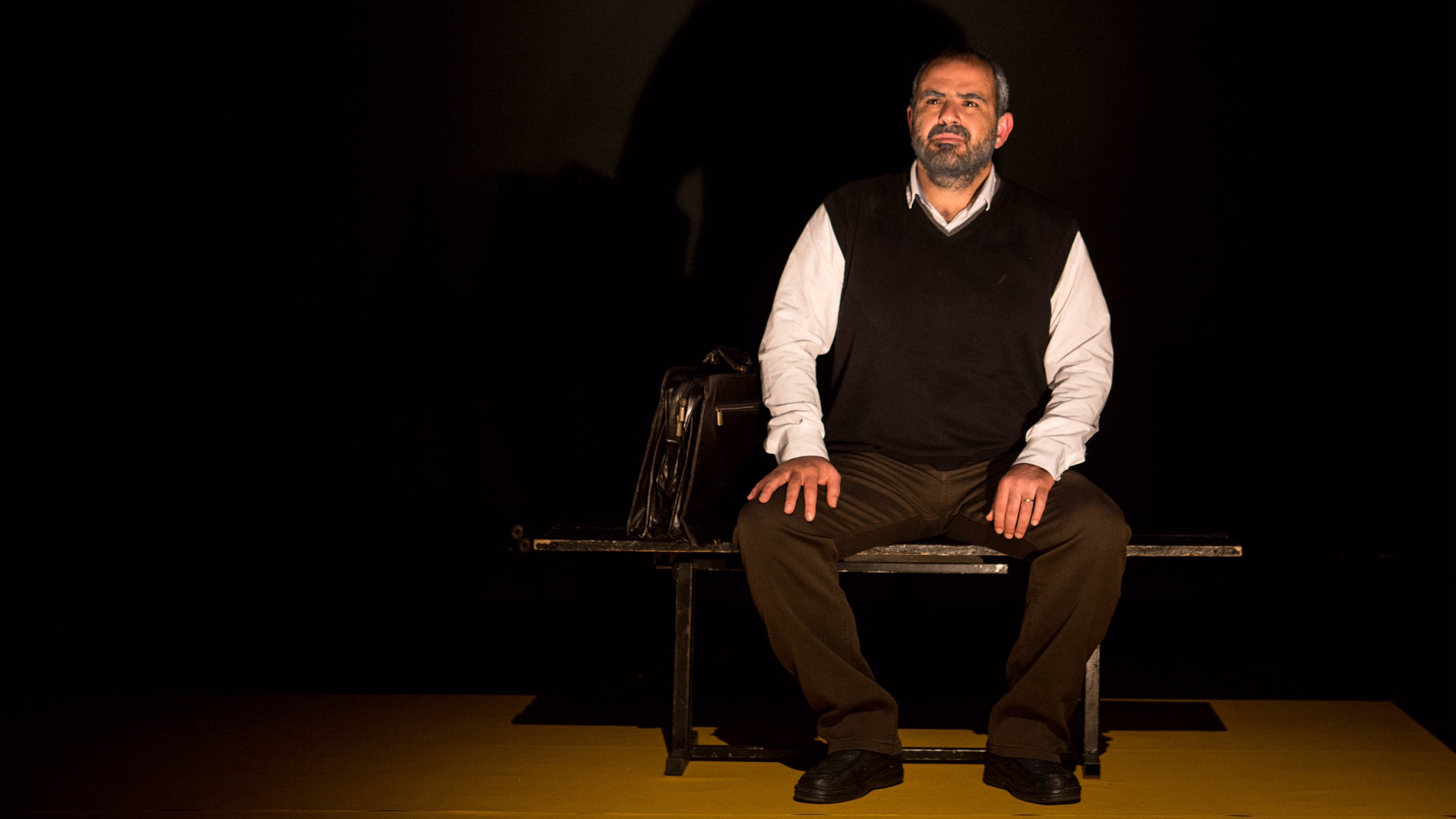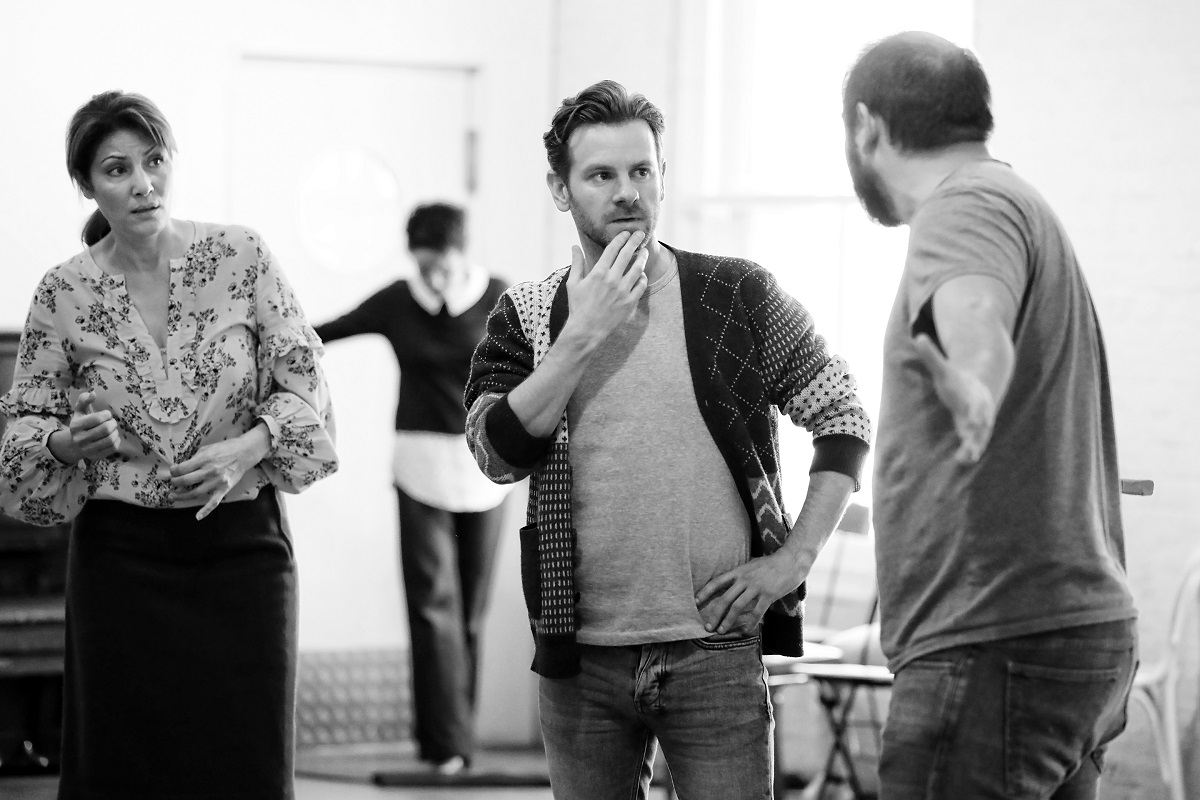Palestinian writer and performer Amer Hlehel breathes life into TAHA. In the theatre performance based on the heartfelt journey of Palestinian poet Taha Muhammad Ali, who, after the war destroys his home village of Saffuriya, attempts to build a life for himself and his family.
Amer encapsulates Taha’s struggles by immersing the audience in his journey, as he navigates Haifa and Nazareth and attempts to cope with the loss and heartache that has transformed his life.
“I want to tell this story because Taha won the catastrophe and all the losses in his life,” Hlehel explains. “He was a very unique voice of the Palestinian people in poetry, so that’s why I chose to perform his story.
“Taha and his family left their village during the war, but when they tried to go home after a year, they discovered that their village was destroyed. They weren’t allowed to go back to their homes and their land, and then they had to live in Nazareth. The place is no longer called Palestine, it’s now called Israel and it’s a new state and a new regime.”
Hlehel has always been a big fan of Taha’s poetry, which really resonated with him due to its cultural significance. Adina Hoffman’s biography about Taha also enhanced his connection to the poet’s life journey.
“I discovered that Taha’s story is holding and carrying the whole story of the Palestinian people,” Hlehel says. “Especially those who remain in Palestine and who became Israeli citizens after the war; now we are like 22% of the population of Israel.”
Hlehel explains that the loss of Taha’s love interest is very special to him, since it’s such a prominent loss that occurred during the war.
“Taha was in love with his cousin and he was supposed to marry her,” Hlehel says. “He wrote a lot about his loss, and this is a very special and unique voice from the war, because mainly when people talk about war, they forget about the main loss – which is you lose your love.”
Taha’s story also holds another weight of importance for Hlehel – it’s similarity to his grandfather’s own life story.
“Taha’s story is like my grandfather’s and also [reflects] my own personal background,” he says. “But I don’t want to tell my grandfather’s story and make it very personal. I want to make a good piece of art, not a family document.”
The stage setup for TAHA is very simple – Hlehel will only have a bench and a briefcase as he performs onstage. The empty space is important in providing Hlehel with the opportunity to narrate Taha’s larger story.
“The play needs to move from place to place – from Nazareth to Haifa to Saffuriya – and it also moves from 1931 to 1999 of Taha’s journey,” Hlehel says. “You need an empty space to try and make people move with you, from space to space and from time to time.”
Theatre is still very new in Palestine, and it’s difficult to gain the proper support to fund it. “It’s very new and we – especially the Palestinian people – lack the support of the state, so you have to find a way to make simple core theatre and try to concentrate on the story and the material itself,” Hlehel says. “I’m now really in love with making this sort of theatre because it’s a primitive form of art.
“You can use imagination and make people’s imaginations grow during the play. As an actor, you are trying to make people move with their minds, to build their frame and their images of the story.
“Your experience as the audience is that you are part of the play and you are involved by completing the image; you’re not having the image completed by others.”

